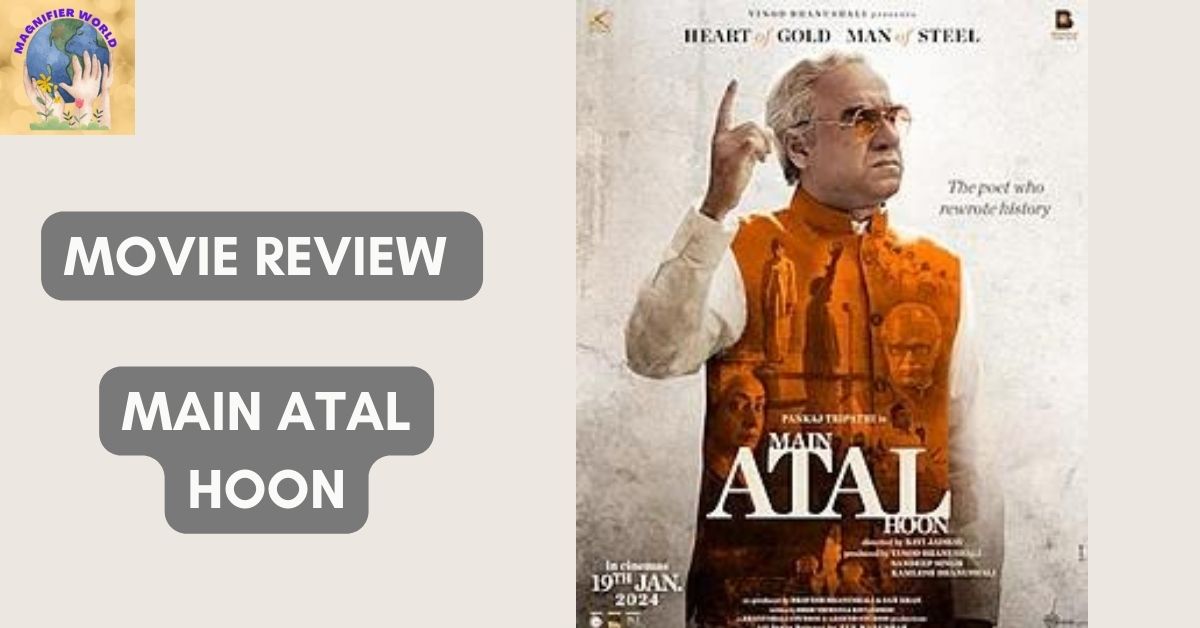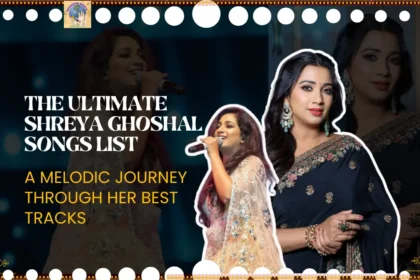Whether it is a biography of a historical character or a personality of contemporary importance, the Mumbai film industry hardly, if ever, does them credit. That commonly believed opinion is not much altered by Main Atal Hoon, which is a film directed and co-written through National Winning filmmaker Ravi Jadhav.
When Main Atal Hoon isn’t a disastrous attempt devoid of any redeeming qualities, then it has creases which could have been addressed if the movie hadn’t been shot so quickly. It is obvious that the rush to finish it on time has affected both the content and the creation. Jadhav is renowned for being a meticulous director. Main Atal Hoon has noticeably lacking in that attribute.
Main Atal Hoon, which tells the life biography concerning Atal Bihari Vajpayee, the 10th Prime Minister of the country and an iconic figure of the party known as the Bharatiya Janata Party, constitutes more hagiography than praise. It takes the reader from birth to death. That being said, the film’s uneven quality does not cover the entirety of the influential right-wing leader’s formative years and turbulent political career.
It paints a picture meant to inspire awe and reverence by presenting bits of this and bits of that as it darts from a single high point to another. This approach fails as a dramatic work or a film because any turmoil in the story is purposefully kept to a minimum to highlight how unflappable and unwavering.
Performance- Pankaj Tripathi
The Main Atal Hoon fails to paint a truly dramatic picture of a politician and orator who experienced many ups and downs, flows and tides during a long path through the chaos of the freedom battle, the trials and tribulations of nation-building, as well as the difficulties of party work. Instead, it highlights elements of Vajpayee’s career and life which satisfy the needs of the present political environment.
Pankaj Tripathi’s pivotal performance saves Main Atal Hoon, a monochromatic biography, just a tad. The actor doesn’t hold back when it comes to channelling Vajpayee’s body expression and speech pattern.
Tripathi’s attempts do not yield the desired results since the performance is hampered by a storyline that lacks genuine insight and inventiveness. Combining political savvy, communication skills, and empathy would have paid off a lot more if Jadhav along co-writer Rishi Virmani concentrated more on the problems Vajpayee had to address than on the solutions he came up with.
With the only goal of showcasing the actions in which the real-life character carried out as a politician along with prime minister, Main Atal Hoon veers off topic. Beyond the narrow scope of the movie are the complexity of subcontinental political issues and the subtleties of ideological battle both within as well as outside of Parliament.
In a nutshell
The film, which focuses primarily on Vajpayee’s political beliefs and personal associations, omits numerous significant information and nuances that could have contributed to a more nuanced, thoughtful, and objective portrayal of the subject than the uncritical ode it ends up being.
It is tough to get enthusiastic about Main Atal Hoon from a purely cinematic standpoint. However, given the film’s obvious purpose, it might not be a complete washout. It may find admirers beyond the circles of those who expect more nuance and diversity from Bollywood biopics, only to repeatedly disappoint them.
Hitz Music










